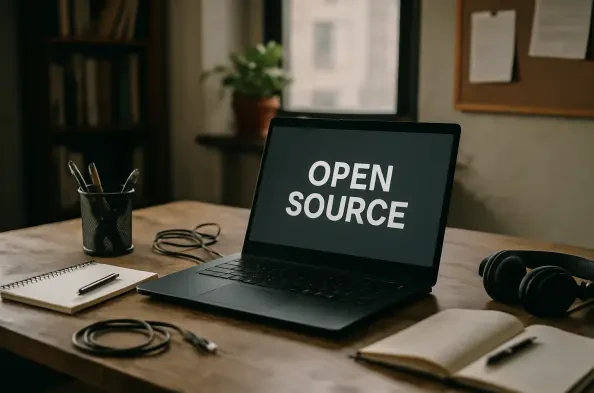What happens when the software millions depend on daily—tools like Linux or Kubernetes—owes its stability to the silent muscle of corporate giants? Far from the spotlight of indie developers or trendy startups, a hidden force shapes the open source world. This narrative peels back the curtain on an ecosystem where major players like Oracle, Intel, and AWS drive critical advancements, often without recognition. Their unseen contributions raise a pressing question: why do these titans of technology remain in the shadows while powering the tools that define modern computing?
The Overlooked Force Sustaining Digital Foundations
The significance of this story lies in the backbone of digital infrastructure. Open source software underpins everything from personal laptops to sprawling cloud networks, yet its survival hinges on efforts that rarely make headlines. Large corporations, often viewed as champions of proprietary systems, are quietly ensuring the reliability of these public resources. Understanding their role is vital as emerging challenges like cybersecurity threats and complex AI integrations demand robust, sustained support. Ignoring this corporate might risks undermining the very systems society relies on.
Hidden Giants Fueling Essential Software
Behind the curtain of popular open source projects, corporate giants wield immense influence with little fanfare. Companies like Oracle have led contributions to the Linux kernel, topping lines of code changed in recent release cycles, focusing on critical areas like memory management. Meanwhile, Intel drives change sets in cutting-edge kernel versions, ensuring foundational stability for countless applications. These efforts, though pivotal, often escape notice as the community fixates on flashier innovations or charismatic solo coders.
Beyond code, strategic involvement shapes entire ecosystems. AWS, for instance, has ramped up contributions to PostgreSQL, optimizing the database for cloud environments while benefiting users worldwide, as seen in their growing presence in GitHub commit logs. This dual focus—enhancing their own services while supporting public tools—demonstrates a pragmatic approach. Such corporate actions ensure that essential software remains not just functional, but competitive in a rapidly evolving tech landscape.
Why Corporate Muscle Matters in Today’s Open Source Landscape
The stakes of corporate involvement have never been higher as digital reliance grows. With open source software forming the core of global infrastructure, maintaining its security and scalability is paramount. Challenges like sophisticated cyber threats and the integration of generative AI demand resources beyond what small teams can provide. Large companies step in with expertise and funding, filling gaps that could otherwise destabilize critical systems.
This involvement also counters a common oversight within the community. While attention often gravitates toward novel frameworks or viral projects, the steady, less glamorous work of maintenance—often shouldered by corporations—keeps the ecosystem alive. Recognizing this dynamic is essential to appreciate how corporate resources safeguard reliability, ensuring that tools remain resilient amid mounting technological demands.
The Silent Backbone of Open Source Innovation
Delving deeper, specific mechanisms reveal how corporations bolster open source projects. Massive code contributions form a cornerstone, with firms like Google and Microsoft ranking among top committers to vital repositories. Their work often targets mundane yet crucial tasks, such as bug fixes or kernel updates, which lack the allure of new app launches but are indispensable for performance.
Additionally, resource investments amplify their impact. Beyond writing code, companies provide hardware support—OCI, for example, offers free Arm capacity to Kubernetes maintainers—enabling testing and development at a scale individual contributors can’t match. Security audits funded by these entities further fortify projects against vulnerabilities, showcasing a commitment to long-term stability that benefits all users, from hobbyists to enterprises.
Insights from the Trenches on Corporate Influence
Voices from within the industry shed light on this intricate relationship. An insider with experience at Oracle and AWS shared a candid perspective: “Contributions to Linux aren’t just goodwill; they optimize cloud infrastructure for speed, but that same work boosts performance on everyday devices like Ubuntu laptops.” This duality of motive and benefit underscores a practical synergy often misunderstood by outsiders.
Data backs up these claims, with contributor statistics revealing that corporations like Red Hat consistently dominate commit logs for critical projects. Such evidence challenges the notion of open source as a purely grassroots domain. Instead, it highlights a balanced partnership where corporate self-interest aligns with community progress, a reality that merits broader acknowledgment over outdated stereotypes.
Shifting Perspectives to Honor Unseen Contributions
Rethinking how the open source community values its contributors is long overdue. One actionable step is to prioritize data over hype—examining commit logs and contributor rankings on platforms like GitHub reveals who truly drives progress. This approach cuts through the noise of conference buzz or trendy branding, focusing on tangible impact.
Equally important is celebrating the less visible but vital work of maintenance. Corporate efforts in bug fixes and kernel housekeeping may lack glamour, but they ensure stability over fleeting innovations. Embracing this mindset shifts appreciation toward those who sustain the ecosystem’s core, rather than just those who launch the next big thing.
Finally, accepting mixed motives as a norm can reshape perceptions. Whether it’s AWS refining PostgreSQL for cloud efficiency or individual developers seeking portfolio boosts, self-interest often fuels sustainable contributions. Recognizing this reality fosters a more inclusive view, ensuring credit reaches all who make meaningful differences, regardless of their visibility.
Reflecting on a Legacy of Quiet Strength
Looking back, the journey of uncovering corporate might in open source unveiled a landscape far more complex than surface narratives suggested. Giants like Oracle, Intel, and AWS proved to be indispensable, their silent efforts anchoring the tools that power daily life. Their story was one of pragmatic synergy, where self-interest harmonized with communal gain.
As this narrative closes, it becomes clear that the next steps rest on collective action. Developers and users alike need to dive into commit data, champion the mundane yet critical tasks, and embrace diverse motivations. Only then can the community build a future where every contributor, seen or unseen, receives due recognition for shaping the digital world.






